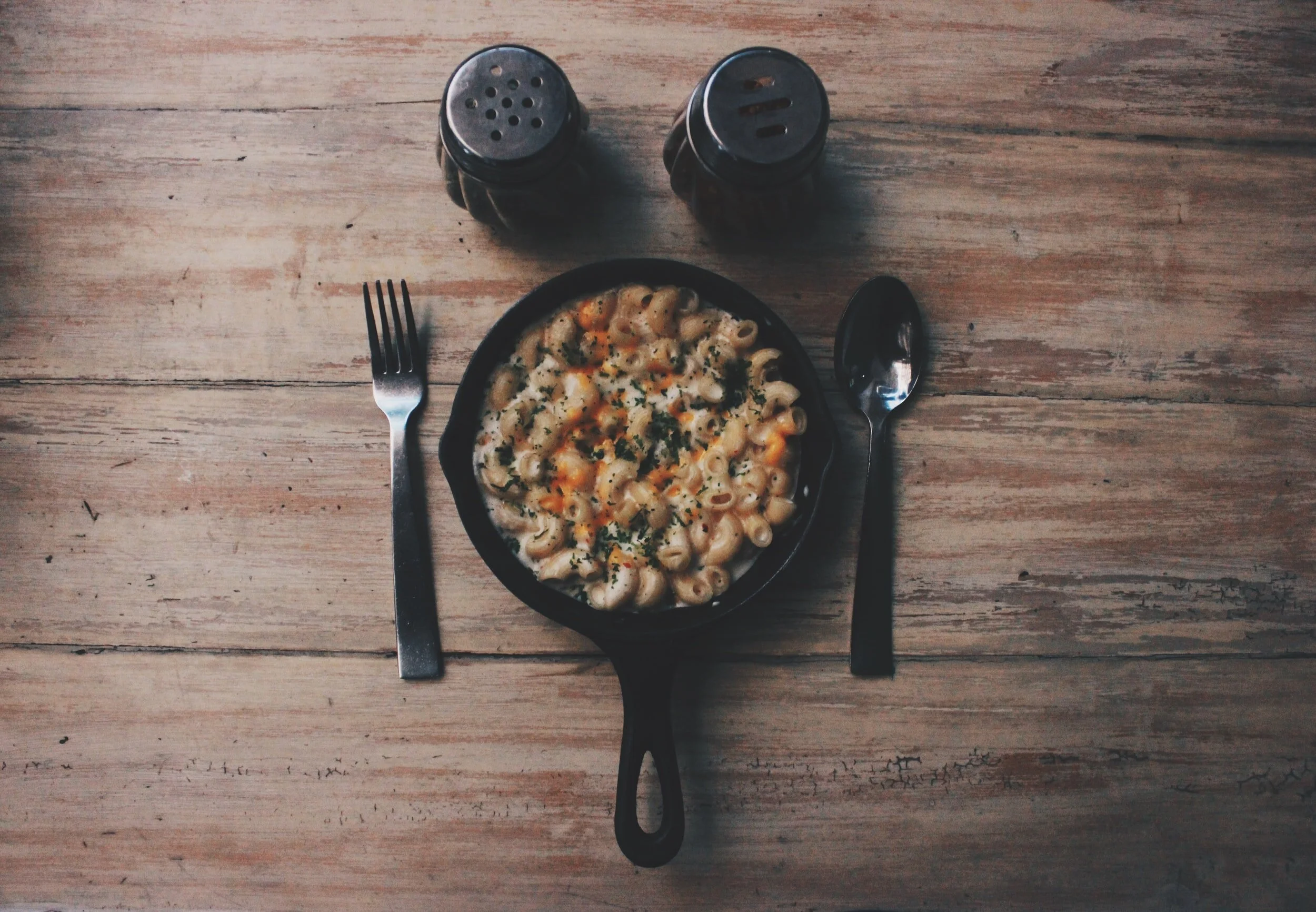Grammer
Summer bore down hard, distorting the asphalt along with my mood. I damned the weather as it must’ve been close to one hundred degrees. My dogs, trying to cool themselves, unfurled their pink tongues and panted. “Almost home,” I said to them. I kneeled down under the shade of a tall flowering tree to stroke their fur, and noticed a familiar looking leaf on the sidewalk. Picking it up, I rubbed it between my fingers. The smells of burnt charcoal, fruit rotting on hot asphalt, aromas of Double Delight and Mister Lincoln roses, twirling sprinklers watering yellowing lawns were nauseatingly intoxicating and brought me right back to my grandmother’s house. Shading her front lawn, my protection from the overbearing summer heat in Fresno, California, stood her Mimosa Tree, also called a Persian Silk. Clusters of its fragrant, pink flowers and their long, threadlike stamens poked out under an umbrella of fronded leaves camouflaging green seed pods. At night and in rainstorms, the delicate leaflets fold up to protect themselves. A power I wish I had.
My grandmother had five grandkids. My three older cousins in the midst of the hippy generation, called her Chippewa, after the Native American tribe, I wasn’t sure why. But my brother and I called her Grammer. For a few weeks every summer, between the ages of nine and thirteen, her home was my sanctuary.
Grammer loved to feed her family, and I don’t mean a little snack. She’d put out a full spread: an entire turkey with cranberry relish that popped in my mouth, pink-centered roast beef with eye-stinging horseradish sauce, dense rye bread aside a tray full of pink, satiny lox. Her desserts were homemade: poppyseed bundt cake, fudge brownies, apricot horns, and miniature icebox cakes with luscious chocolate frosting. My grandmother usually served meals formally at the dining room table, but as soon as I was alone with her, we’d eat in the living room.
I was nine. Grammer plopped two scoops of raspberry sherbet into metal tumblers, partially filled with hand squeezed orange juice. She’d rustle through her fancy credenza and out would come her old-fashioned metal straws. The feel of the cold silver between my lips made every slurp of the frothy, half-frozen treat taste even better. Digging down to the bottom, I spooned big, rosy globs of sherbet into my mouth. We ate every meal on TV trays while watching The Brady Bunch, The Courtship of Eddie’s Father, and Marcus Welby M.D. I was the luckiest girl in the world.
When I was ten, my parents allowed my cousin, Sarah to take me on the train from San Francisco to Fresno. The Southern Pacific’s “San Joaquin’s Daylight Route” was fourteen stops long and took six excruciating hours. Sarah, just eighteen in 1970, had long, brown hair and wore flowing batik caftans that reeked of Patchouli Oil. She grasped me by one hand, and in her other, her book by Khalil Gibran. I loved my cousin and wanted to please her, so I spent the long train hours trying to pay attention while she read aloud to me from the pages of The Prophet. I felt very grown up but happy to get off that train. After dropping me at my grandmother’s, Sarah took off to visit her friends. I was thrilled to have Grammer all to myself. I loved every single part of that house. The blast of the air conditioner as I entered the living room from the hot front lawn. My bare feet, cool and bouncy on the beige, shag rug. Running my hand along the rough brick wall in the hallway, I’d skip to Grammer’s bedroom, happily anticipating crawling into my little twin bed next to hers and burrowing my face into her flowery bedspread, inhaling the soapiness.
Grammer smelled of Johnson’s Baby Powder. Puffy clouds of the pungent scented dust sailed through the air, squeezed out from her too tight girdles and perfectly styled wigs. Three Styrofoam heads lived on top of her dresser, each fashioned one of the identical hairdos. She’d even let me comb out the silvery locks. Mostly, I’d sleep in her room, but when she snored too loudly, I’d go across the hall to sleep in the guest room.
Grammer taught me to play cards. Not kid games like Crazy Eights and Go Fish. Grown up games: Canasta and Gin Rummy. We’d play for money, usually pennies, but sometimes a nickel would be thrown down. High stakes for a kid. She didn’t let me win but I won anyways. She took the time to teach me. I loved everything about her and she loved me back. I always felt like she was on my side.
Grammer’s living room was my nirvana. Covering her glass coffee table were cut crystal candy dishes filled with Bridge Mix and Scotchmallows from See’s Candies. Jellied beaded sweets shaped like blackberries and raspberries. Homemade peanut brittle, brought as hostess gifts from her weekly card game gals, Butter Mints, and fancy nuts piled high in polished silver dishes. She’d let me eat as much as I wanted, replenishing the supply, so it never ran out. I never felt ashamed about being overweight or watching non educational T.V. shows, like I did back home. How much more Jacques Cousteau could I stand anyways? Grammer never brought up politics, or tested my knowledge about Watergate and the Vietnam War. I didn’t want to go back. My dream was to live with her forever. But my time in the summer always came to an end.
My mother disliked my grandmother, and she didn’t keep that a secret. Grammer’s impending arrivals made my mother even tenser than normal. On one of her visits, my brother and I were out of our minds in anticipation of Grammer’s promised ice box cakes, apricot horns, and Soubereg, a cheesy Armenian dish, that had been frozen in advance of her departure, and we knew would be stuffed deep into her huge black suitcase.
“Velma’s never happy with anything I do for her,” my mother lamented, before Grammer even had a chance to speak. My father had just walked into our house from work.
“Your wife wouldn’t help me with my bag. I had to carry my heavy suitcase up all the stairs. By myself.” Grammer whined.
“I offered to help,” my mother snapped. “For goodness sake, the cab driver would have helped also. You should have been nicer to him.”
This couldn’t be my Fresno grandmother, I thought, watching her chin quiver, then the tears splash off her thick, black cat eye glasses, and down onto her squashy cheek.
“Your wife was either ignoring me or is intentionally mean,” Grammer whimpered.
“How can you say that?” My mother cried out, and stomped angrily out of the kitchen, continuing up the stairs to the bedroom she still shared with my father, but not for much longer.
I felt caught between their rivalries. Their struggles to get my father’s attention, which I’d abandoned by age twelve, continued on until the end of my parent’s marriage. My father never openly chose sides, but I guessed it wouldn’t have been my mother’s. Grammer might have won the daily battles, but my mother won the long war. The silences. The standoffs. Infedility. His indifference. A nasty divorce. In the end, neither of them got what they wanted. I didn’t either.
I left home in 1976 at age sixteen and moved in with my boyfriend, Rob. I hadn’t seen Grammer for a while, and I missed her. She’d always been kind and generous. The important family member in my life. I was also broke and hungry, and needed to come up with fifty dollars for the rent that I didn’t have. Food could wait. I couldn’t take a chance on losing my room. I wouldn’t call my parents. Contact had broken down altogether after the second time they’d come to the flat to try and get me to move back home. I’d refused. Months had passed by and there were no more visits. I guessed they’d given up on me. I decided to call Grammer. She would help me, I knew it. I went to the hallway, picked up the phone and dialed zero.
“Operator, how can I help you?”
“I need to place a call. Collect to Fresno. Fresno California.” My heart beat louder with every unanswered ring.
“Hello? Who’s calling?” I heard Grammer ask.
Hearing her voice made me wish I was in Fresno eating candy, playing cards, and watching TV. I pictured us on her white sofa listening over and over to the records I bought when I was thirteen: Lynyrd Skynyrd, Cat Stevens and The Allman Brothers. My Grammer was the coolest, always making me feel so special, like I mattered. I bit my lip so I wouldn’t cry.
“This is the operator, will you accept the charges?”
“Yes, operator,” she answered.
I heard a click, the operator’s line cut out. Then silence. We were alone. “Hi Grammer, how are you doing?” I asked in a sing-song tone, trying to sound upbeat. I wasn’t so sure anymore that she would help me, but Rob was standing next to me, so I continued making small talk. Finally I blurted out, “Grammer can I borrow fifty bucks? I promise I will pay you back as soon as I can.” I knew I probably couldn’t, but was hoping she would just give it to me.
“I can’t do that. Your father warned me not to give you any money if you called.” She sounded sad but firm.
As soon as she turned me down, I realized she’d already picked sides. She wasn’t different from my parents. She was an extension of them. My head burned. My stomach churned. I was on the verge of losing it. I should have gotten off the phone, but I had nowhere else to turn, so I kept listening to her over-rehearsed refusal. She couldn’t go against my father’s wishes, even though she wanted to help. It was as if I’d bitten into a chocolate bunny expecting it to be solid, but the inside was hollow.
“Grammer, I promise, I swear I’ll never tell.” I was insistent, verging on desperate. My brain felt all fizzy, under pressure like a shaken up soda can. She repeated her lines, and then told me she had to go as the call was expensive. I hung up the phone. I couldn’t look at Rob. I was so embarrassed having had bragged about how great of a relationship I had with my grandmother. He grabbed and held me as I cried.
I didn’t make any more visits to Fresno to see my grandmother, not out of spite, but because I remained outside of my family. I stayed in touch sporadically but it wasn’t the same. She knew I went off to college but I’d dropped out by 1979 and moved back to San Francisco. Trying to change my life in 1982, I’d enrolled in nursing school. My parents were long divorced and I’d become the stranger. I don’t know why, but one night I called up my father. He told me that Grammer was sick and in the hospital. I was in a phone booth. I crammed all the change I had into the slot and dialed the hospital in Fresno. I was connected to her room.
“Hello, who is this?” She asked.
Oh god, she sounded so old. “Grammer, it’s me, Anne. Are you ok? Dad told me you’re in the hospital.”
“How are you honey?” She whispered.
I was so relieved to hear her voice. We spoke for just a couple minutes. She sounded weak, but happy to hear from me. “I’m back in college. I’m going to be a nurse. I just wanted to tell you that I love you so much, Grammer.” Did she say it back? I want to believe she did. Later that night she had a massive heart attack. She didn’t make it.
I looked at the leaf in my hand, bent down and picked up a lacy pink blossom that had fallen on the sidewalk from the Mimosa Tree. Rubbing the silkiness between my fingers, I stuck it in my pocket, lingered a bit longer under the shady tree with my dogs, and walked the rest of the way home.
-Anne Fedoroff
Anne Fedoroff had a thirty year career in the neuroscience field as a Registered Nurse. She volunteers at her local state prison assisting inmates in successfully reentering society, as well as participating in a tutoring program. Anne is an avid writer. She’s looking forward to her first publication.






















